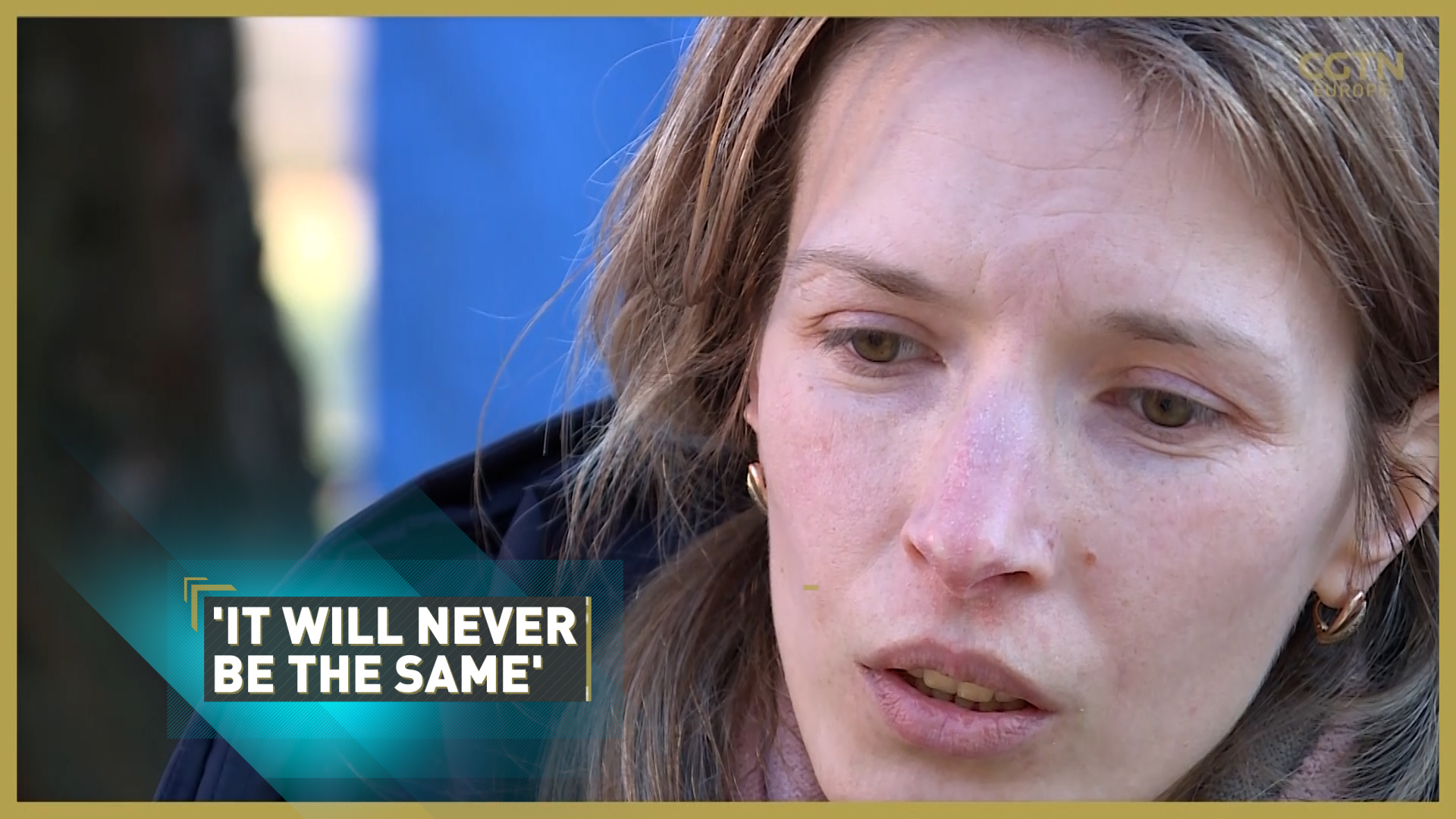Vitalli, Inna and their 12 year-old daughter, Diana have escaped Ukraine. After five days of travel from Chernihiv, a northern Ukrainian city that has been extensively bombed, they finally found safety at an emergency shelter at the Hungarian border town of Beregsurany.
But the memories of what they saw are still fresh. On his phone Vitalli has the videos he recorded just days earlier from the window of their house: In the distance a large explosion can be seen, preceded by loud booms.
03:28

"You cannot imagine how scary it is to live on the fifth floor and see helicopters coming in your direction, shooting at you and seeing everything in the city on fire," Inna tells CGTN Europe.
Millions of refugees like Inna have fled the war in Ukraine. However, at border crossings such as this one, refugees face another, more silent battle: Trauma.
READ MORE:
Can you measure intelligence?
Stop this war! Plea from a destroyed town
What are hypersonic missiles?
Experts have warned, there's an urgent need for psychological support for refugees, saying many are at risk of developing lifelong mental problems.
Along with other volunteers, psychologists have joined the frontline.
"Many of them want to speak, many of them don't," a volunteer therapist that asked to remain anonymous told CGTN.
"Just today I was talking to a lady and she started to speak and in the middle she just said she didn't want to speak anymore. It happens," she said.
Those more at risk of developing trauma are those whose families stayed behind.
"There are very horrible stories, obviously this was a war. But those things are mostly done. These people will stand up again, build a life again, not forget but get over it. But what they cannot get over it's who they left there. Who they left there to die - a term they use often", the therapist says.
Most children are doing okay, she tells us. But there are exceptions. The psychologist recalls a four year-old boy who was afraid to enter a bus heading to Budapest with his family. After days stuck in a bunker while his house was bombed, the child developed a fear of confined spaces.
"But I used a magic trick," the therapist says as she blows soap bubbles through a plastic toy. "It works, even with adults," she said with a smile.
Inna is a psychologist herself. She says she is aware her daughter, Diana will definitely feel the long-term effects of what they've gone through, "but no one can tell when or how."
"So far, we haven't thought about that, we just think of surviving the day," she said.
Most of their family stayed in Ukraine. The night at this shelter is the first proper sleep they had in days. No more bombs or helicopters. But still, on their minds, the constant concern for those that stayed behind.
"This will also affect me," revealed Inna. "Nothing will ever be the same."

